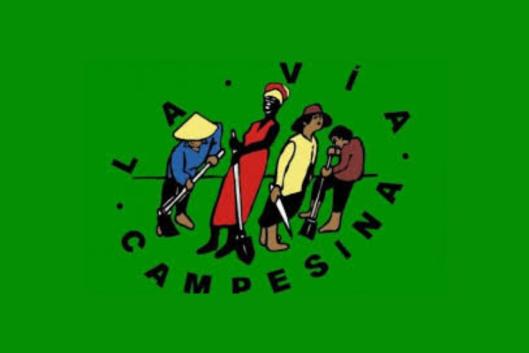Since its founding, WRM has worked in defence of human rights when denouncing deforestation brought about by oil drilling, mining, logging, the construction of dams and other megaprojects, and the expansion of monoculture tree plantations and agribusiness in general. This is because, in every one of the cases denounced, the rights of communities who live in or depend on forests are systematically violated.
The very survival and identity of these communities are now threatened not only by the destruction of forests, but also by conservation schemes which aim for the forests to be empty, with no communities living in them. These reductionist, profit-driven conservation projects ignore history and are imposed on the local population, sometimes through manipulation, sometimes through force, trampling the full range of human rights: from first-generation civil and political rights, to second-generation economic, social and cultural rights, to third-generation or “solidarity” rights, which place emphasis on the unifying nature of their impact on the lives of everyone, and include the right to a healthy environment, clean air, clean water and uncontaminated food.
The current situation of concentration and expansion of capital, primarily in the framework of the financial market, has given rise to processes of commodification and financialization of nature, in which land grabbing has taken on an ever greater role. This advance of big business groups and financial speculation over the land has come at the cost of the displacement and dispossession of peasant communities, who have long been ignored and marginalized despite the fact that peasant farmers and rural workers make up 1.2 billion people around the world.
Many peasant communities are encompassed in our campaigns to defend forests and other equally important biomes, as well as our campaign against tree plantations, because they too suffer the consequences of deforestation and environmental destruction, losing the sustenance provided to them by forest products, or losing their way of life and future when monoculture tree plantations surround or invade their agricultural lands.
Up until now, the rights of peasants were not specifically recognized by the United Nations. However, after a long, hard-fought struggle by peasant movements, this past September 27 the UN Human Rights Council (HRC) adopted Resolution A/HRC/21/L23 on the promotion of the human rights of peasants and other people working in rural areas. Adopted by a vote of 23 in favour, 15 abstentions and nine votes against – including those of European Union member countries – the resolution calls for the preparation of a draft United Nations declaration on the rights of peasants and other people working in rural areas, on the basis of a draft submitted to the HRC by an advisory committee.
The initiative for the draft declaration emerged in 2008 during the International Conference on Peasants’ Rights, held in Jakarta. It was La Via Campesina that brought the initiative to the UN:
The draft declaration formulated by the HRC advisory committee establishes a number of new rights that address the specific concerns of peasant farmers, including the right to land and territory, the right to seeds and traditional agricultural knowledge and practice, the right to means of agricultural production, and the right to the protection of local agricultural values, among others.
The adoption of the HRC resolution represents a landmark victory in the struggle of peasant organizations. It serves as recognition of the essential role played by peasants in food production, as well as the importance of their contribution though proposals to deal with such challenges as growing conflicts over land and water, the climate crisis, and the critical rise in food prices.
It was peasant organizations, primarily through La Via Campesina, who raised the banner of food sovereignty, a strategy that means beginning to make changes to provide positive solutions for a number of the problems created by an agro-industrial model that has not taken human rights into account. Peasant organizations have brought to the table the need to give back agriculture to peasant farmers, taking away the power accumulated by agribusiness, because it is peasants, through small-scale, family farming, focused on what, how and for whom to plant, who can make a huge contribution to the well-being of millions of human beings and to the possibility of a liveable planet in the future.
In addition to feeding the world, peasant farmers can also help to cool the planet, providing a positive solution for climate change, as demonstrated by figures which show that shifting agriculture away from industrial large-scale agribusiness back to small-scale peasant farming could cut global greenhouse gas emissions by more than one half (see WRM Bulletin 149).
The United Nations resolution implies complete recognition of peasants and other rural workers as holders of human rights that must be defended. For their part, national governments have a responsibility to implement programmes and policies to promote food sovereignty, to improve rural living conditions, and to protect peasants, as well as being legally responsible for the protection of their human rights.
This is a momentous victory in the peasant movement struggle against marginalization, extreme poverty, forced evictions, and criminalization when they take action to defend their rights to their land and territory and fight back not only against the appropriation and destruction of ecosystems but also the violation of their human rights as peasants. In many parts of the world, peasant movements face threats, campaigns to discredit them, imprisonment, unfair trials, repression and death.
This is why La Via Campesina welcomes the UN resolution, but emphasizes: “The struggle continues.”
Based on the Portuguese-language article “Vitoria na defesa dos direitos humanos dos camponeses depois de luta difícil”, sent by Isabelle Dos Reis, La Via Campesina, Africa Region 1 (Southern, Eastern & Central Africa), Maputo, Mozambique, http://viacampesinaafrica.blogspot.com/,
vcafrica@gmail.com
